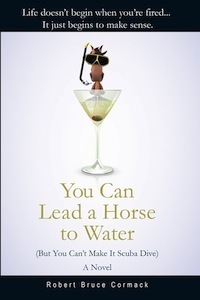The Man Who Carried a Dictionary.

I worked with an account director once who kept a dictionary in his briefcase. It was the pocket kind, what they called “The Little Oxford Dictionary.” For all the time we worked together, Ken — that was his name — carried this little dictionary around with him to meetings. In fact, I don’t remember a meeting where Ken didn’t have his dictionary.
He used it on a wide variety of clients. I say “wide” because it worked on young and old clients alike. Some had seen him use that dictionary before. Others only saw it the once. Most decided they didn’t want to see it again.
Everyone knew Ken had the dictionary in his briefcase. Even the head of Gillette, our biggest client, had seen Ken’s dictionary, and he was one of the few who actually liked it.
It wasn’t that Ken was a stickler about spelling or a word’s meaning. What he did care about was who used the words. To him, some people were meant to form words into sentences. In some respects, he saw it as a calling.
If you remember Bill Bernbach saying “I worship at the temple of creativity,” well, Ken didn’t worship so much as appreciate what writing could do. He wasn’t a pushover. He didn’t like everything you showed him, but once he did, it became his responsibility. It was up to him to make sure it sold.
Now, I’ve never been a great seller of creative. I once asked Ken why, and he said “You’re too close to it. Did you ever see an inventor who was a great salesman?” That’s what made our team work. We were inventors and Ken was the salesman. That’s not to say he didn’t want us to talk. We all talked, we all explained our ideas, but then it was up to Ken. He was the closer.
Anyone in advertising knows, it’s a rare occasion when creative comes away unscathed. If it’s good, it’s different. That scares people. Sometimes it’s a matter of easing a client into the work, giving them time to digest. A good account person knows how to do that. Ken knew it better than most people.
Not that it worked every time — or with everyone in the boardroom. There was always a product manager, or advertising manager, or marketing manager who didn’t like what we presented. They’d start fiddling, saying this wasn’t right, or that didn’t reflect the corporate image. Occasionally, one of them would simply say, “This isn’t what I was expecting.”
We called those the “golden words.” Young product managers were the worst. They looked at creative like home renovation. They expected to see things a certain way. If they didn’t get what they wanted — or expected — as far as they were concerned, we weren’t doing our jobs. We failed the brief.
That’s when Ken’s dictionary came out. He’d simply unlatch his briefcase, throw the dictionary on the boardroom table and say, “The words are all there. Pick the ones you want. We’ll put them in a copy deck.”
The responses varied. One young product manager took immediate offense. “That’s not my job,” she said to Ken. I’m sure she felt justified. Didn’t she have the right to defend herself? Wasn’t she the client? Looking around the room, you could see a lot of downward glances. Ken might have said something like, “No, it’s our job, isn’t it?” but he didn’t.
Instead, his voice went all soft, almost fatherly. He folded his hands in front of him and said, “We pay this copywriter here good money. If we could get away with not paying him, I’m sure our accountants would be happy. We could get a bunch of account executives and media buyers. Thing is, though, this copywriter keeps writing things people don’t expect. And for some reason, a lot of them like surprises. We get their attention. That translates into sales. Isn’t that what you want?”
He’d look around the room, watching everyone do different things. They’d scribble, they’d stare at something in the brief. Then the marketing manager or the advertising manager would nod and say, “Of course it is.”
With that, Ken would put the dictionary back in his briefcase, closing it, flipping the snaps. It was dramatic, sure, and I’m not saying it always worked. Some people resented Ken and his dictionary. They’d leave the room afterwards, probably saying to a colleague, “Who does he think he is?”
For the most part, though, that dictionary represented what everyone knew was true. Words belong in the hands of those who know how to surprise. If they form something you expect, then they’re just words. As Ken would say, “I can write words. I doubt anybody would glance at them twice. Hell, I don’t even glance at my own words twice. What does that tell you?”
As I said earlier, Ken wasn’t like Bernbach, worshiping at the temple of creativity. He liked ideas, he appreciated what they could do. But he wasn’t a philosopher. He was a pragmatist. His job was to put out advertising that people would notice. He saw it as a his duty to his client.
If we’re in advertising or any profession dedicated to raising the profile of a product or service, then our job is to surprise and persuade. The day a client says, “That’s exactly what I was expecting to see,” then we’re not promoting — we’re pandering. What’s pandering worth? Certainly not what agencies charge. I’d say pandering is worth minimum wage. Same goes for people who deliver information back and forth. “This is what the client wants,” they’ll say, never questioning whether it’s right or not.
What’s that worth? Again, I’d say minimum wage.
As long as I worked with Ken, he never said “This is what the client wants.” We always talked in terms of the marketplace. “Schick’s bringing out three new entries,” he’d say. “People like new, but they trust old. That’s where we have to be. Figure it out and let’s go back on Friday.”
If that sounds like a short brief, believe me, it’s all there. Anyone who gives you ten pages doesn’t know anything. They’re confused, so they confuse you. Clients do the same. I’m sure Ken sat through hours with product managers. It was all nonsense. Ken never brought back nonsense. He probably knew the problem before the product managers opened their mouths.
That’s called being professional, and Ken was a professional. Like I said, maybe the dictionary was a little too dramatic for some people. But Ken got his point across. Remember when I said the head of Gillette actually liked Ken’s dictionary? He told Ken one time he’d always have the account.
When was the last time a client said you’d always have the account?
Maybe it’s time to get a dictionary.
Do you think agencies are pandering these days? Do you think they’re earning more than they should? Let me know at: rcormack@rogers.com
Robert Cormack is a freelance copywriter, blogger journalist and novelist. His first novel “You Can Lead a Horse to Water (But You Can’t Make It Scuba Dive)” is available online and at most major bookstores. Check out Yucca Publishing or Skyhorse Press for more details.

Articles from Robert Cormack
View blog
Or is it us? (It's us). · “I intend to live forever, or die trying.” Groucho Marx · I didn’t want to ...

Fuck. · “I thought about reading a poem by Shakespeare, but then I thought, why should I? He never r ...

All I did was write the first Canadian rock jingle. · I still remember how we wore our jeans with le ...
Related professionals
You may be interested in these jobs
-
designer - interior design
Found in: Talent CA 2 C2 - 4 days ago
ESSENCE-HABITAT Montreal, CanadaWork Term: Permanent · Work Language: French · Hours: 35 hours per week · Education: College/CEGEP · Experience: 5 years or more · Tasks · Estimate cost of projects and prepare detailed specifications · Manage business or office · Create interior spaces that reflect clients' need ...
-
Commis PCX
Found in: Talent CA C2 - 6 days ago
Loblaw Companies Calgary, Canada Temps partielL'utilisation du masculin à pour but d'alléger le texte · Venez faire votre différence dans les communautés à travers le Canada, où l'authenticité, la confiance et l'établissement de liens sont valorisés - alors que nous façonnons l'avenir du commerce de détail au Canada, ensemb ...
-
environmental health officer
Found in: Talent CA C2 - 5 days ago
Northern Health Authority Terrace, Canada PERMANENT Full timePosition Summary · ** Financial Support for Moving Expenses is available for this position ** · Are you someone who has a real passion for helping others? Are you a certified Public Health Inspector looking to highlight your knowledge, skills, and abilities in a new and dynamic ...




Comments
Robert Cormack
7 years ago #4
It all depends on the person holding the device.
Robert Cormack
7 years ago #3
Thanks, Graham. Glad you enjoyed the read (and the lesson).
David B. Grinberg
7 years ago #2
Graham🐝 Edwards
7 years ago #1